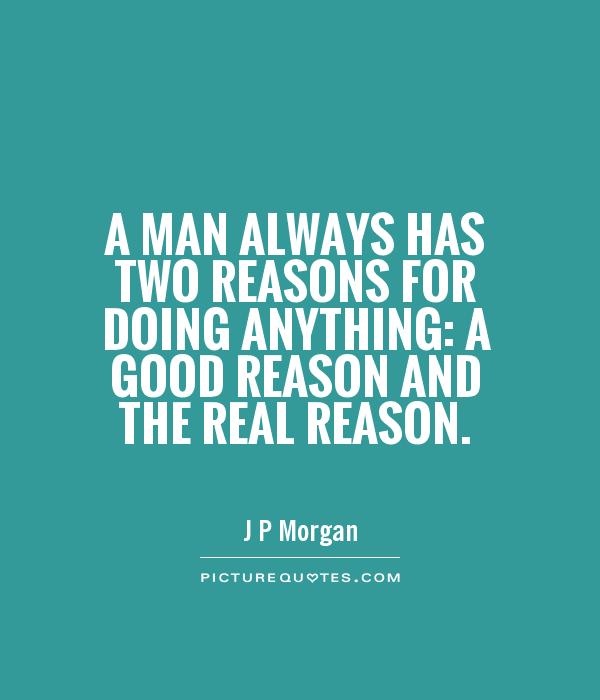A man always has two reasons for doing anything: a good reason and the real reason

A man always has two reasons for doing anything: a good reason and the real reason
The quote "A man always has two reasons for doing anything: a good reason and the real reason" by J.P. Morgan sheds light on the complexity of human behavior and decision-making. It suggests that individuals often have multiple motivations for their actions, with one being the socially acceptable or morally justifiable reason (the "good reason") and the other being the true underlying motive (the "real reason").In the context of reason words, this quote highlights the importance of understanding the underlying motivations behind people's actions. Reason words are the words or phrases that individuals use to explain their decisions and behaviors to themselves and others. These words can often serve as a mask, hiding the true intentions or desires that drive a person's actions.
For example, someone may say they are quitting their job because they want to pursue new opportunities and challenge themselves (the good reason). However, the real reason may be that they are unhappy with their current position, feel undervalued by their employer, or simply want to escape a toxic work environment. By understanding the difference between the good reason and the real reason, we can gain insight into the true motivations behind someone's actions.
Furthermore, the quote also suggests that individuals may not always be fully aware of their own motivations. People may rationalize their actions by focusing on the good reason, while ignoring or suppressing the real reason. This can lead to a lack of self-awareness and introspection, making it difficult for individuals to understand their own behavior and make meaningful changes in their lives.












 Friendship Quotes
Friendship Quotes Love Quotes
Love Quotes Life Quotes
Life Quotes Funny Quotes
Funny Quotes Motivational Quotes
Motivational Quotes Inspirational Quotes
Inspirational Quotes